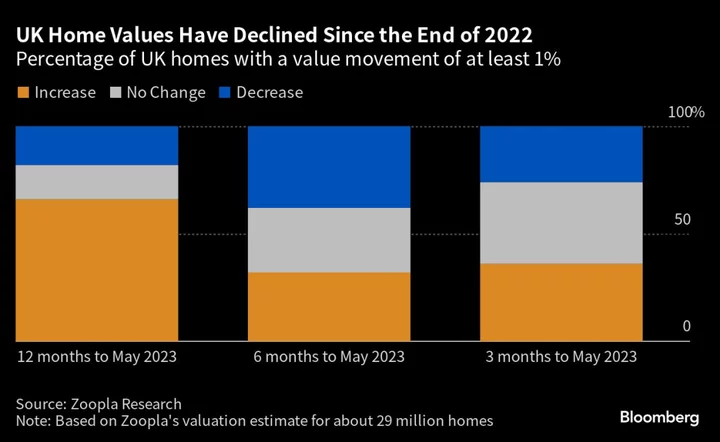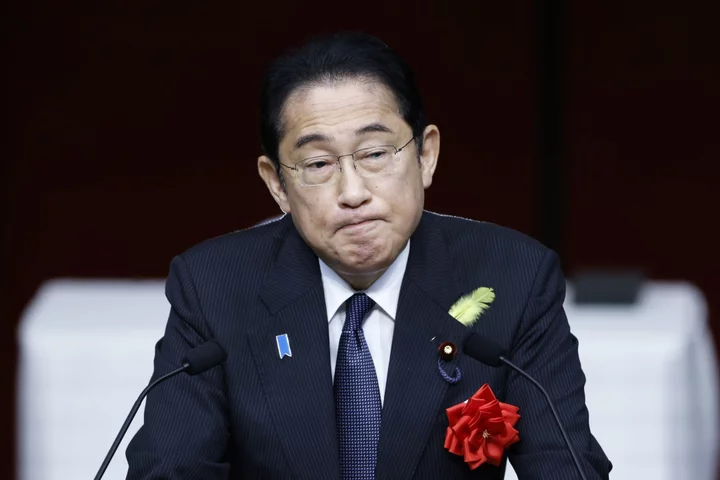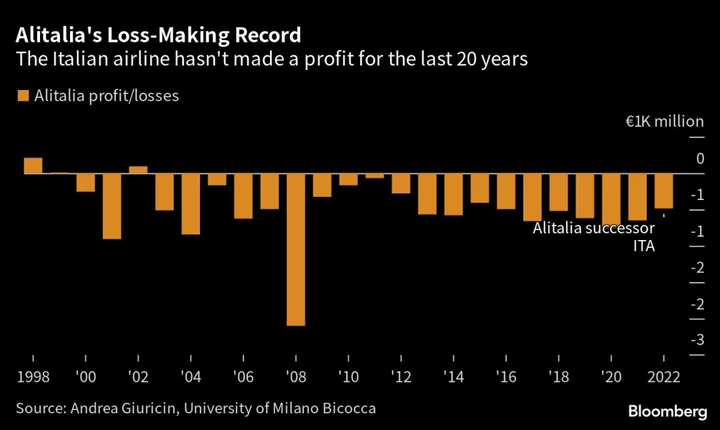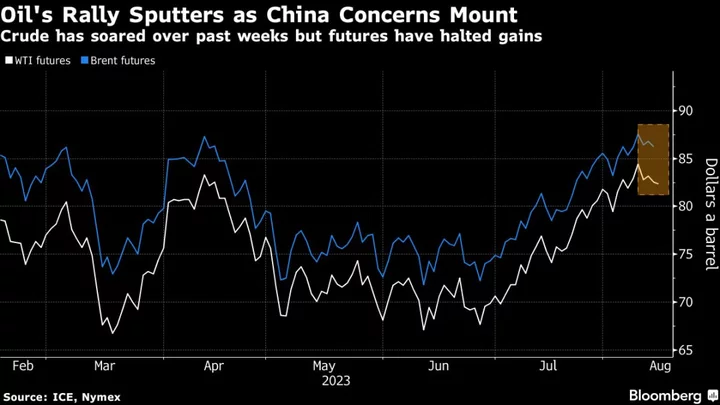UK mortgage holders have a fresh financial worry to deal with after a key lending rate surged to its highest in almost 15 years.
The average rate for fixed two-year home loans rose to 6.66% on Tuesday, the highest since August 2008, according to Moneyfacts Group Plc. The average five-year fixed-rate deal increased to 6.17%, edging to closer to a 14-year peak reached in October after the government’s ill-fated mini-budget spooked markets.
UK households are facing an avalanche of cost pressures triggered by rising interest rates and the worst cost-of-living crisis in a generation. Millions of homeowners have seen the value of their homes decline this year, with some analysts forecasting a double-digit drop in prices as the nation adapts to costlier borrowing.
Meanwhile, lenders are hiking the cost of loans, pulling deals off the market and tightening borrowing criteria, making it harder for first-time buyers to get on the property ladder. That’s prompted Chancellor Jeremy Hunt to extract a promise from the largest banks to have patience with borrowers in difficulty, though the government has ruled out direct fiscal support.
How UK Mortgage Mountain Complicates Inflation Fight: QuickTake
Still, a Bloomberg Economics model which links home values to interest rates suggests Britain’s housing market remains overvalued. There is now a 16% gap between the price of a UK home and what the fundamentals can justify in July, the model shows, reflecting how the post-pandemic property boom lifted prices above their equilibrium level and pricey borrowing crunches affordability.
“Britain’s housing market correction has further to run,” Niraj Shah, an economist at Bloomberg Economics, wrote in the report. “The fastest pace of policy tightening since the 1980s, permanently higher mortgage rates and stalling real incomes mean the slow grind lower in property prices is likely to persist.”









